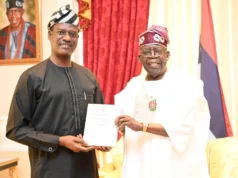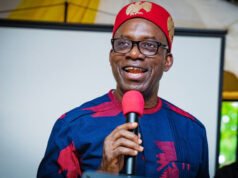On World Teachers’ Day, 5 October 2025, the Ministry of Education, Youth and Sport (MoEYS) of Cambodia and UNESCO issued a clarion call: teachers must take centre stage not just as implementers, but as catalysts in the AI-driven transformation of education. In an age where artificial intelligence and digital technologies are already reshaping how we learn, work, and relate, teachers are no longer passive users — they must become active architects of the future classroom.
The joint statement underscores a vital truth: technology alone cannot transform education. It is the human agency — the creativity, ethics, wisdom, and care of teachers — that determines whether AI becomes a tool of empowerment or a mechanistic substitution. In positioning “teachers as catalysts for AI transformation”, MoEYS and UNESCO articulate a vision in which educators are central not only to deploying AI, but to shaping its purpose, boundaries, and values in education.
This advocacy carries urgency. As nations across the world rush to integrate AI and digital tools into schooling systems, many risk sidelining teacher capacities and voices. By contrast, Cambodia’s MoEYS, in collaboration with UNESCO, is illustrating a model in which teacher agency, professional development, and national frameworks together set the pace for meaningful innovation.
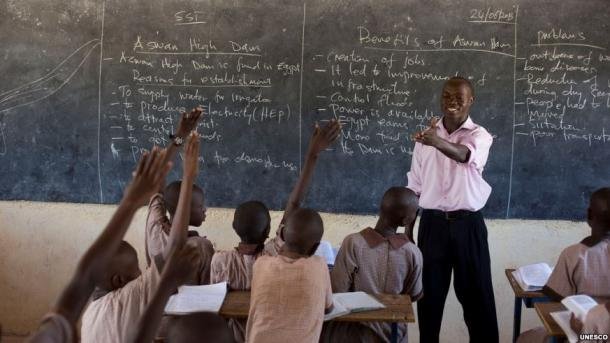
Table of Contents
National Celebration Anchored in Local Vision
This year, Cambodia hosts the global commemoration. The national ceremony, held at the National Institute of Education (NIE) in Phnom Penh, was chaired by H.E. Dr. Hang Chuon Naron, Deputy Prime Minister and Minister of Education, Youth and Sport, along with Ms. Esther McFarlane, Chief of Education, UNESCO Phnom Penh. Over 1,200 teachers, education leaders, and development partners convened to reflect and chart a path forward.
Their national theme—“Teacher is the catalyst of AI transformation”—is fittingly aligned with broader strategies. Cambodia’s “Pentagonal Strategy – Phase I” names human development and digital transformation as twin pillars for sustainable national growth. Within that framework, education is not just a service sector but a foundation for future societies.
To operationalise this vision, MoEYS is rolling out the country’s first-ever ICT-AI Competency Framework for Teachers. With support from UNESCO and the Global Partnership for Education (GPE), via the STEPCam programme, Cambodia is channeling USD 27.02 million into the strengthening of teacher education systems. The framework is intended to clarify what digital and AI skills teachers need to integrate technology responsibly—while preserving the core human dimension of teaching, according to UNESCO.
According to the official press text, the competency framework draws upon UNESCO’s global frameworks (2018 for ICT; 2024 for AI). It seeks to balance technological fluency with pedagogy, ethics, collaboration, and innovation.
Minister Hang Chuon Naron emphasised that teachers are the engines of Cambodia’s digital transformation. He argued that AI tools—used well—can help with lesson planning and personalise student learning, but only under teacher stewardship. In his words:
“By equipping them with the skills to harness digital technology and AI responsibly, they are empowered to unlock new learning opportunities and nurture the next generation of innovators and leaders.”
But he also warned: AI must augment, not replace, the human decision-making, empathy, and critical thinking that teachers bring.
Meanwhile, Ms. Esther McFarlane from UNESCO stressed another dimension: collaboration. The 2025 international theme, “Recasting Teaching as a Collaborative Profession,” underscores that teaching is no longer a solitary act—it thrives in communities of practice, mentoring networks, and shared inquiry. The joint statement urges that even as teachers master AI, they should do so together, as reflective professionals.
To back these ideas, Cambodia and UNESCO have been expanding teacher mentoring, continuous professional development programmes, research grants for teachers, and networks for shared innovation. The aim is to institutionalise teacher voice and agency within policy and practice.
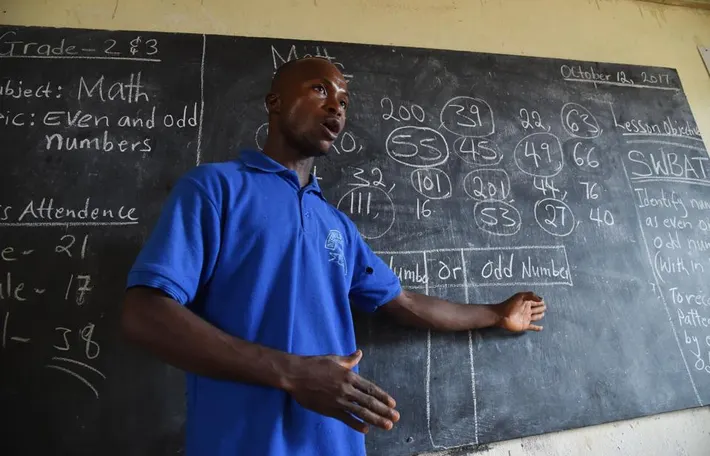
The Stakes: Why Teachers, Why Now?
Why place teachers at the heart of AI transformation? The MoEYS-UNESCO statement lays out compelling rationales:
- Moral and ethical guardrails: AI systems can replicate or amplify bias, deepen inequality, or marginalise voices. Teachers, attuned to student diversity and equity issues, can serve as critical custodians — questioning, calibrating, and contextualising AI practices in classrooms.
- Pedagogical innovation: Rather than blindly adopting AI tools, teachers should lead in adapting tools to curricular goals, local contexts, and student needs. They can experiment, reflect, and iterate.
- Sustainability and ownership: Project-driven AI programmes often falter when external funding ends. But systems anchored in teacher capacity are more likely to endure, scale, and evolve.
- Balancing technology with humanity: Education is fundamentally relational. While AI may recommend, assess, or personalise, the human touch—empathy, dialogue, social development—remains irreplaceable.
- Shaping futures responsibly: Students are growing into a world increasingly permeated by AI. Teachers equip them not just with skills, but with critical literacies: how to question, interpret, and co-design AI systems rather than passively consume them.
Yet, acknowledging these stakes is only part of the challenge. Realising the vision demands strategic investment, policy coherence, and genuine partnership between ministries, teachers, researchers, and development agencies.
Cambodia’s STEPCam programme offers one model: a concerted, well-funded, multi-year initiative to build capacity across the continuum—from pre-service teacher training to in-service development, mentoring, and collaborative innovation. But scaling and adapting such models to diverse national contexts poses major logistical, financial, and political challenges.
Moreover, many teachers worldwide face shackles: large class sizes, inadequate infrastructure (e.g. unreliable electricity, poor connectivity), rigid curricula, limited autonomy, and low professional morale. Without alleviating these constraints, even the most visionary AI policy may remain aspirational.
Finally, there are equity concerns: rural and marginalised schools risk being left further behind in the AI transition. If teacher AI capacity building is uneven, the educational divide may deepen. Policymakers, therefore, must prioritise inclusion and capacity equity.
Lessons for Nigeria and Beyond: Toward a Teachers-Led AI Future
Though the press release centres on Cambodia, its message resonates across all education systems—including Nigeria. The thrust is clear: technological leapfrogging without teacher empowerment is a dead end.
For Nigeria, here are key takeaways:
- Develop a national AI-in-education competency framework anchored in teacher professional standards and tailored to local realities.
- Invest in sustained professional development, not piecemeal workshops — with mentoring, peer networks, and incentives for teacher innovation.
- Build infrastructure equitably, prioritising connectivity, electricity, devices, and maintenance in underserved areas.
- Promote teacher-led innovation, e.g. grants, research projects, communities of practice, so that teachers can contextualise AI rather than be passive recipients.
- Safeguard ethical use, data rights, privacy, and inclusion — and embed these topics in teacher training.
- Elevate teacher voice in policymaking — consultations, representation, feedback loops — so that AI policies reflect lived classroom realities.
- Stay student-centred: AI must serve learners, not the other way round. Teachers should direct AI as a tool, with human values and empowerment at the core.
If Nigeria takes this path, its large teaching force (millions strong across primary, secondary, and tertiary sectors) could become a powerful lever of transformation rather than a bottleneck.
Of course, transfers are not simple. National contexts differ: scale, budgets, languages, logistics, governance models. But the principle holds universally: empower teachers, or risk undermining education reform.
In an era where AI promises efficiency, personalisation, and new learning modalities, Nigeria and many other nations stand at a crossroads. Do we hand over classrooms to algorithms, or harness them under the wise guidance of teacher-innovators? The MoEYS-UNESCO advocacy, grounded in this year’s World Teachers’ Day, makes the answer clear.
Looking Ahead: From Vision to Practice
As 2025 closes and nations plot their AI-education trajectories, several imperatives must guide the journey:
- Pilot and iterate: Launch small-scale teacher-led AI integration pilots, monitor outcomes, collect feedback, and refine before large rollouts.
- Multistakeholder collaboration: Ministries, teacher unions, local institutions, NGOs, the private sector, and researchers must come together to co-design solutions.
- Sustainable financing: Long-term budget lines and external partnerships must support AI-in-education—not just short grants.
- Monitoring and evaluation: Rigorous evaluation methods must measure not just technology usage, but learning impact, equity, teacher agency, and unintended consequences.
- Global exchange: National actors can learn from international experiences—Cambodia’s STEPCam, UNESCO’s frameworks, regional networks, and cross-country peer learning.
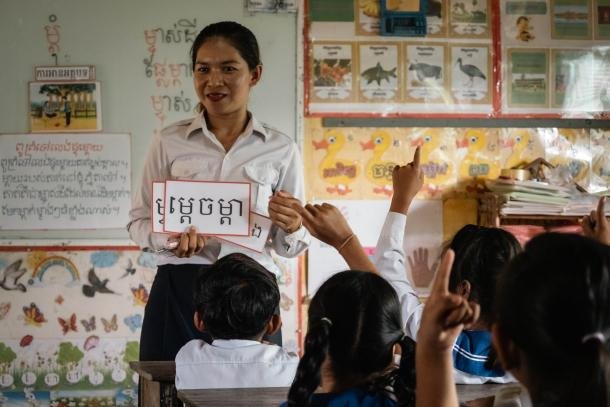
For its part, UNESCO continues to offer frameworks, technical expertise, and convening power. Cambodia’s collaboration model offers inspiration, but it’s only one of many possible paths. What matters is adapting to national circumstances, centring teachers, and doing so with humility, experimentation, and ethical foresight.
On this World Teachers’ Day 2025, the message is clear: teachers are not just users of AI — they are catalysts, shapers, guides. If education systems are going to adapt, evolve, and empower learners in the AI era, it must begin with trusting, supporting, and listening to those who teach. The future of education depends not on machines, but on human voices in classrooms making wise choices.
Join Our Social Media Channels:
WhatsApp: NaijaEyes
Facebook: NaijaEyes
Twitter: NaijaEyes
Instagram: NaijaEyes
TikTok: NaijaEyes
READ THE LATEST EDUCATION NEWS



